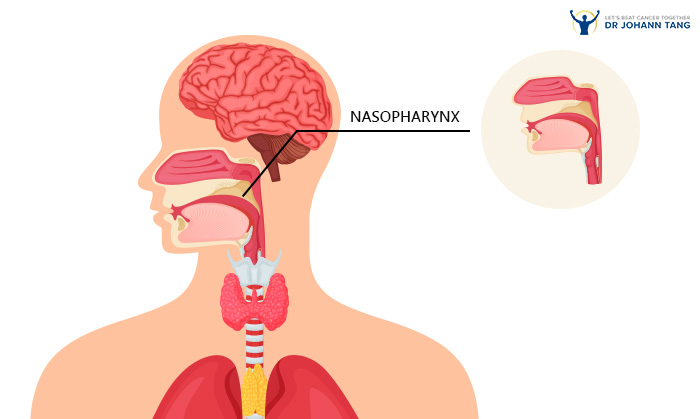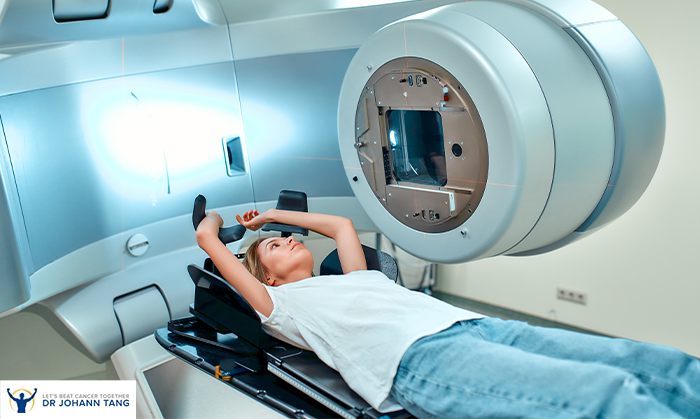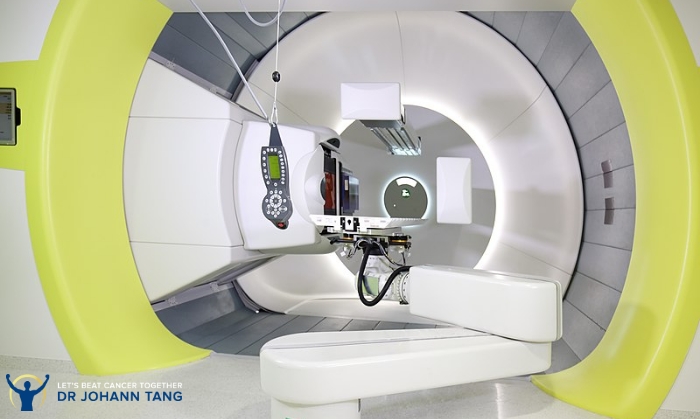Using Stereotactic Radiosurgery To Treat Brain Tumours
Medically reviewed by Dr Johann Tang, Senior Consultant Radiation Oncologist
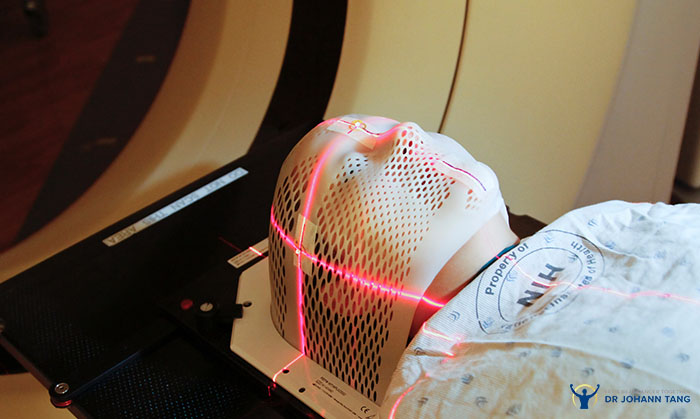
Brain tumours may form as a result of abnormal cell growth in the brain. They can be categorised into benign and malignant tumours with the former being non-cancerous and the latter being cancerous. The symptoms of brain tumour vary greatly depending on size, type and location. While the exact causes are unknown, some of them can be attributed to family history, age and exposure to infections, viruses and allergens. When left untreated, brain tumours may exert pressure or spread to healthy areas of the brain. Therefore, should you be diagnosed with brain tumour, the ideal course of action is to consult your doctor on suitable treatment plans. Besides surgery, Stereotactic radiosurgery is one of the other treatment methods used to help treat brain tumours.
What is Stereotactic Radiosurgery
Stereotactic radiosurgery revolves around using targeted radiation beams to treat tumours in certain parts of the body. Though the term may include the word ‘surgery’, no incision is required. Performing stereotactic radiosurgery on the brain or spine is typically completed in one session. Stereotactic radiosurgery is a popular treatment option as the focused beams minimise damage to healthy surrounding tissues. Due to this, patients experience lesser and milder side effects as compared to conventional radiotherapies.
How is Stereotactic Radiosurgery Performed
During the treatment, patients are required to lie on a hard table similar to the ones used for MRI and CT scans. Multiple small beams of radiation are then targeted at the tumour and this is made possible with specialised stereotactic radiosurgery equipment. When these beams come together, it creates a powerful dose of radiation that will promote shrinking of the tumour and blood vessels to close with time. The whole procedure is done outpatient only and takes 30 minutes. No inpatient stay is required normally.
Types of Technology Used
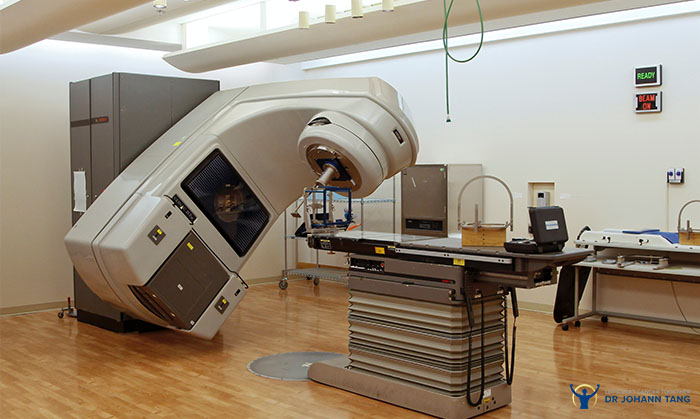
With regards to stereotactic radiosurgery, there are generally three types of technology your radiation doctor in Singapore may use. – Linear accelerator (LINAC), gamma knife and proton beam therapy.
LINAC machines are non-invasive and use X-rays to treat tumours and other abnormalities. It does not require any frame to be screwed on to the skull.
Gamma knife technology is an invasive treatment requiring a head frame to be screwed on to the brain under local anaesthesia. Compared to LINAC treatment, which is over in 30 mins, Gamma knife treatment usually lasts 4 to 8 hours depending on the half life of the radium source. They are less common than LINAC machines and less popular due to the invasive head frame that is required. Proton beam therapy is the latest technology to date and uses proton rays rather than X-rays. Proton therapy is considered to be safer as it limits the beam of proton particles to only the tumour area, thus, protecting healthy tissues surrounding it.
Side Effects

As mentioned above, the side effects of stereotactic radiosurgery are milder and fewer than traditional radiotherapies. Feeling fatigued is a common symptom. Patients may also experience swelling around the treated area, which can cause nausea or headaches. Red, itchy scalp or temporary loss of hair are some of the implications that may come with stereotactic radiosurgery. Fortunately, side effects are only temporary and should not last too long. If these symptoms persist, do visit your radiation doctor in Singapore to alleviate them.
After your treatment has been fully completed, you should be able to return to normal, everyday tasks. Your radiation doctor may request follow-up appointments to ensure that your body is mending well. Ultimately, each individual’s condition is different and while stereotactic radiosurgery may work for some, it might not be ideal for others. It is best to seek advice from your healthcare professional on suitable treatments before committing to anything.
Interested to learn more on stereotactic radiosurgery as a treatment option for brain tumour? Dr Johann Tang is an experienced radiation oncologist in Singapore who provides quality cancer treatment using radiation therapy. Contact us for more information!
Related Articles
Read this next ...

Dr Johann Tang
Senior Consultant Radiation Oncologist
Medical Director of ME Novena Specialist Group Pte Ltd
MBBS (Aust), FRANZCR (Radiation Oncology)
Dr Johann Tang is the Senior Consultant and Medical Director of ME Novena Specialist Group Pte Ltd. at Mount Elizabeth Novena Hospital and an Assistant Professor at the Yong Loo Lin School of Medicine, National University Singapore. Dr Tang’s journey towards being a radiation oncologist in Singapore started with him obtaining his medical degree from the University of Newcastle, Australia, in 1998 and completing his house officer training at the Hunter Area Health Service before returning to Singapore to complete his National Service in the Singapore Armed Forces Medical Corps. Thereafter, he did his specialty training in Radiation Oncology in Singapore at the National University Hospital (NUH). After obtaining his fellowship from the Royal Australian College of Radiologists (FRANZCR) in 2007, Dr Tang underwent breast brachytherapy fellowships at the University of Wisconsin as well as prostate brachytherapy, skin, and paediatric fellowships at the Peter Maccallum Cancer Institute, Australia. In 2021, Dr Tang underwent a fellowship at the New York Proton Centre with Dr Charles Simone in head and neck, re-irradiation, paediatric, prostate, and lung cancers.
Why Choose Dr Johann Tang
Dr Johann Tang is an experienced radiation oncologist and cancer doctor who aims to deliver the highest level of care to his patients, especially when it comes to radiation therapy and cancer treatment. As a cancer specialist in Singapore, he is dedicated to understanding each patient’s condition and providing holistic, customised care that is both effective and compassionate. With ethics and empathy at the core of our practice, we strive to understand your individual needs and provide care that is compassionate and responsive.
"I guarantee my very best expertise delivered with compassion and dignity as we journey TOGETHER to BEAT this dreaded illness."
Make An Enquiry
Got Queries? Book an appointment with Dr Johann Tang by filling up this form. We'll get on a call with you as soon as possible.
Prefer to talk? Call us directly at +65 6690 6811
or email us at drjohanntang@gmail.com

